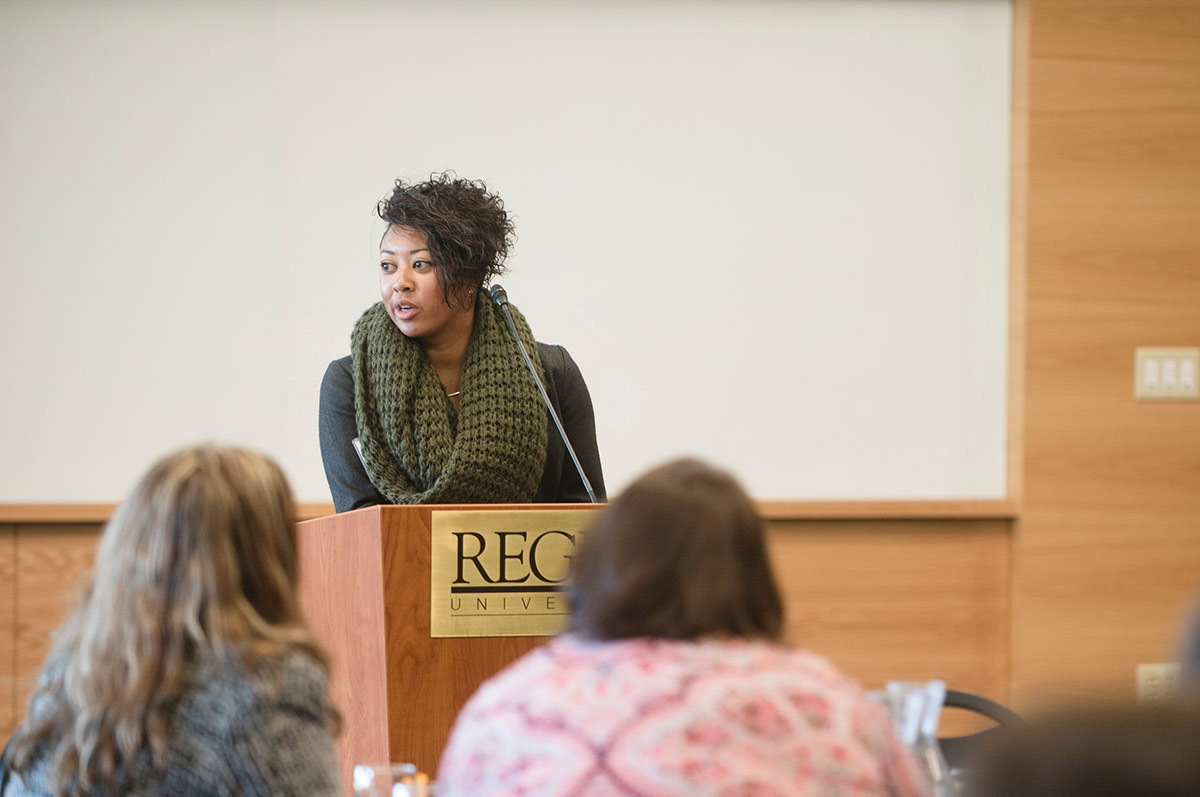How can I serve the world with a liberal arts degree?
Service. It’s a word that often receives more lip-service than action.
To us, it means being men and women who are with and for others. We seek deep relationships, and through those strong bonds, lead the charge to meet others’ most important needs.
That mindset is one of the reasons Regis students completed 63,312 total service learning hours during the 2018-19 academic year. It’s why we train therapy dogs, raise up the next generation of doctors, shine a light on injustice and teach leadership skills to at-risk youth.
One of the best ways to prepare yourself to serve and lead is to choose a liberal arts degree. It’s designed to help students learn the foundational elements of effective service and career success: skills such as ethical problem solving, clear communication, tactful negotiation and strong leadership. “These are the skills that enable you to be successful in the workplace, and for which the Association of American Colleges and Universities tells us employers are looking,” says Erica Ferg, Regis associate professor of liberal arts.
Here are a few reasons to pursue a liberal arts degree if you’re hoping to serve others in your career.
A liberal arts degree is highly interdisciplinary. Through a liberal arts degree, you’ll be exposed to a wide array of subjects, learning styles and perspectives. By learning to make connections across academic disciplines, you’ll become a more versatile thinker and learner, ready for whatever postgraduate challenges come your way. That adaptability is one of the most important qualities of a servant leader.
Liberal arts majors have higher earnings in the long term. Liberal arts majors earn more money on average by their mid-50s than those whose undergraduate majors were in professional or pre-professional fields, according to Inside Higher Ed. With higher earnings, you’ll have more capacity to be financially generous toward those in need.
“Perhaps the single-most important skill set imparted by a liberal arts degree is that of critical thinking — the skill of being able objectively to analyze and evaluate an issue in order to form a judgment about it — which is valuable in every part of your life." - Erica Ferg, Regis University associate professor of liberal arts
You’ll learn how to learn. As Professor T. Kaori Kitao of Swarthmore College said, “Learning how to learn by learning how to think makes a well-educated person.” A liberal arts degree not only helps you understand how your brain functions best. It also solidifies the specific learning pathways that help you and others maximize critical thinking — which, in turn, will maximize your efforts to help others solve problems.
It’s a strong foundation on which to build. This degree is a springboard for those who desire advanced degrees in business, law and management. In fact, one of the best ways to use your liberal arts degree is to pair it with a more specialized graduate degree. According to Inside Higher Ed, 40 percent of liberal arts graduates get advanced degrees — and earn roughly $20,000 more per year by doing so. More influence in your field means more opportunity to create positive change in the areas you care about.
Find the major and program for you with our degree finder and learn more about how the entire Regis University family is here to make you successful as a student.



